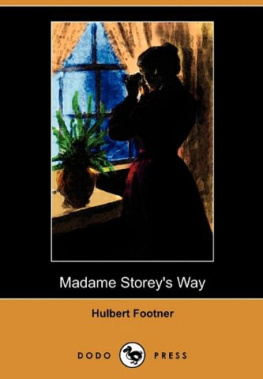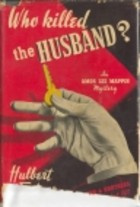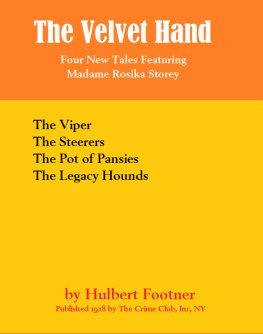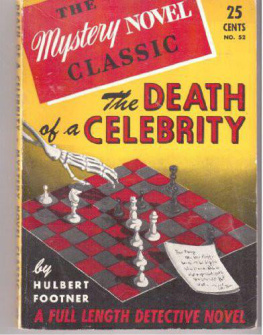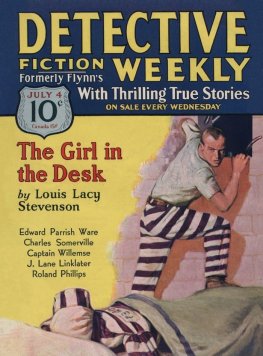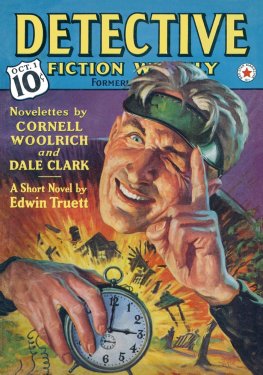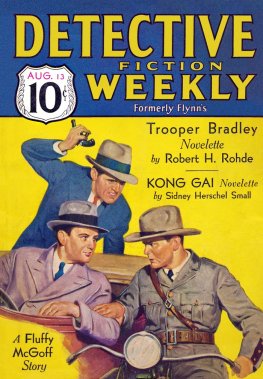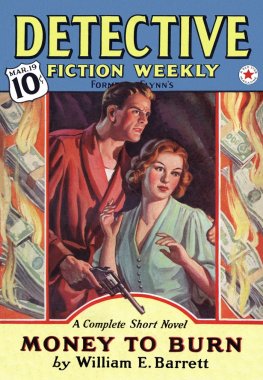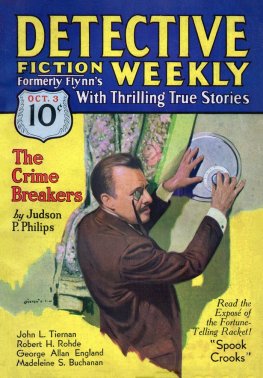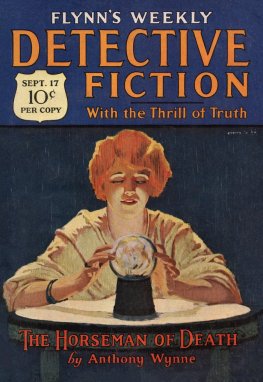Madame Storey
by
Hulbert Footner
*
an ebook published by e e e
e pub e book e ditions.com.au
PART ONETHE ASHCOMB POOR CASE
I
I cannot better put that extraordinary woman, my employer, before you than by describing my first meeting with her. It is easier to show her qualities in action than to describe them.
On a certain morning, no different from thousands of other mornings, I was in a subway train on my way to the office when my eye was caught by this striking advertisement:
WANTEDBy a woman of affairs, a woman
secretary; common sense is the prime requisite.
Printed words have an extraordinary effect on one sometimes. Something in these terse phrases so strongly appealed to me that though I had a very good position at the time, I interrupted my journey to the office and went directly to the address given.
It was on Gramercy Square. The house proved to be one of the fine old dwellings down there that have been altered into chic more-or-less-studio apartments. Bridal couples of the old Knickerbocker set are fond of setting up in that neighbourhood, I am told. As I approached, other females were converging at the door from three directions. The hall-boy, a typical New York specimen, looked us over with a grin, and without asking our business said:
"Madame Storey ain't down yet. Youse is all to wait in the little front room."
I asked him privately what was Madame Storey's business.
"Search me!" he said cheekily. "She don't hang out no sign."
Her apartment was the first floor front; part of the parlour floor of the old mansion. It was evidently only an office, but such an office! The walls were hung with priceless tapestries, there was an Italian Renaissance table for the secretary, ditto chairs for the clients, and here and there a bit of Chinese porcelain to make a vivid spot of colour. I confess I looked a little dubiously at all this magnificence; somehow it didn't seem quite respectable. All the time I was wondering what Madame Storey's "affairs" consisted of.
There were about twenty women waiting; not nearly enough chairs, so most of us stood. It was funny to see how every Jill of them was busily cultivating an air of common sense. All looked at me as I entered with an expression which said as plainly as words: "You might as well go; you will never do!" It was somewhat disconcerting until I saw that later arrivals received exactly the same look. No doubt I glared at them that way myself. There were far too many of us there already. What did more have to come for, we thought?
We were a motley throng ranging in age from seventeen to seventy. Women who obviously couldn't do a thing in this living world had rushed there to give Madame Storey the benefit of their common sense. One saw that there were as many definitions of common sense as there were women. Some thought it was sensible to paint their faces like a barber-pole; others, and these the larger number, considered that a sensible woman must don a hideous travesty of masculine attire, and wrinkle up her forehead like an ape. As for myself, the moment I saw that exquisite interior realised the incongruity of freckled, red-haired me amidst such surroundings. I had no hope of getting the position, but the whole affair was so funny to watch that I stayed on.
We waited an hour casting haughty glances at one another. But no one got tired and left. At the end of that time the boy from below threw open the door with a flourish and announced impressively:
"Madame Storey, ladies."
There was a dramatic pause while we breathlessly waited with eyes fixed on the open door. Before we saw her we heard her voiceshe was speaking to the boy outside, a slow voice with the arresting quality of the deeper notes of the oboe. Then she entered, and an audible breath escaped from all us women. I don't know what we expected, certainly not what we saw.
She was very tall and supremely graceful. It was impossible to think of legs in connexion with her movements. She floated into the room like a shape wafted on the breeze. She was darkly beautiful in the insolent style that causes plainer women to prim up their lips.
She wore an extraordinary gown, a taupe silk brocaded with a shadowy gold figure, made in long panels that exaggerated her height and slimness, unrelieved by any trimming whatsoever. On her head she wore an odd little hat of the same colour with an exquisite plume curled around the brim. All this was very well, but what made the women gasp was that snuggled in the hollow of her arm she carried a black monkey dressed in a coat of Paddy green, and a foolscap hung with tiny gold bells.
She looked us over with eyebrows registering delicate mockery, and glanced at the ape as if to call his attention to the spectacle. Nevertheless she was not displeased by the sensation her entrance had created. I suspected that she had lingered outside especially to create that dramatic pause.
It was funny to see the faces of the waiting women, wherein strong disapproval struggled with the desire to please. As for myself, having no pretensions to beauty, I don't have to be jealous of other women. I only knew the moment I laid eyes on Madame Storey that I wanted that job and wanted it badly. In the first place, a really beautiful woman is an unfailing delight to my eyes; in the second, something told me that whoever worked for that woman would see Life with a capital L. I didn't care much then what her business might be.
She had kept us waiting a long time, but once there she expedited matters. Without any preamble she turned to the woman nearest the doorit was one of the near-masculine type that I have mentioned, and said with a smile:
"There is no need of your waiting any longer."
The woman gasped and turned a bricky colour. "Whywhy" she began.
"I merely wished to save you from wasting more of your time," said Madame Storey kindly.
The woman snorted, glared around at us all, grasped her umbrella firmly around the middle and stumped out.
The next one was a sweet young thing of forty-odd who put her head on one side and wriggled her shoulders when Madame Storey looked at her.
"You needn't wait," said that lady.
The third was a middle-aged woman of determined mien. When Madame Storey turned to her she stiffened upbreathed hard and prepared to stand her ground.
Madame Storey shook her head with a deprecating smile.
"But I am a sensible woman," insisted the other. "Everybody says there is no nonsense about me."
Some of us were impolite enough to laugh.
"I don't doubt it," said Madame Storey, "but you are not what I require."
"I insist on an explanation!"
"Certainly. You do not like me, you see. What would be the use?"
The woman went out with a dazed air.
So it went. In five minutes the room was pretty well cleared. As she approached me my heart sank lower and lower, for I did want that job. But she appeared to overlook me altogether, and I was one of the three left when she completed her circuit. The other two were handsome, assured, well-dressed girls, and I told myself I had as good a chance against them as the traditional snowball down below.
Madame Storey said: "I will see you young ladies one at a time in my own office."
The other two pressed forward, each trying to be the first, but I hung back. I argued that she would not engage anybody until she had talked to all three, and as every lawyer knows, there is a considerable advantage in having the last say.
The first girl, a ladylike blonde in a tailored suit, was not inside more than two minutes. She came out looking red and flustered.
"Well?" we asked her simultaneously.
"Never gave me a chance to say a word!" she said crossly. "Offered me a cigarette. Since she offered it, I knew she must be a smoker, so I took it, not to seem goody-goody. Well, I'm not accustomed to them. I choked over it. She just stood up and said good-morning."
Next page
